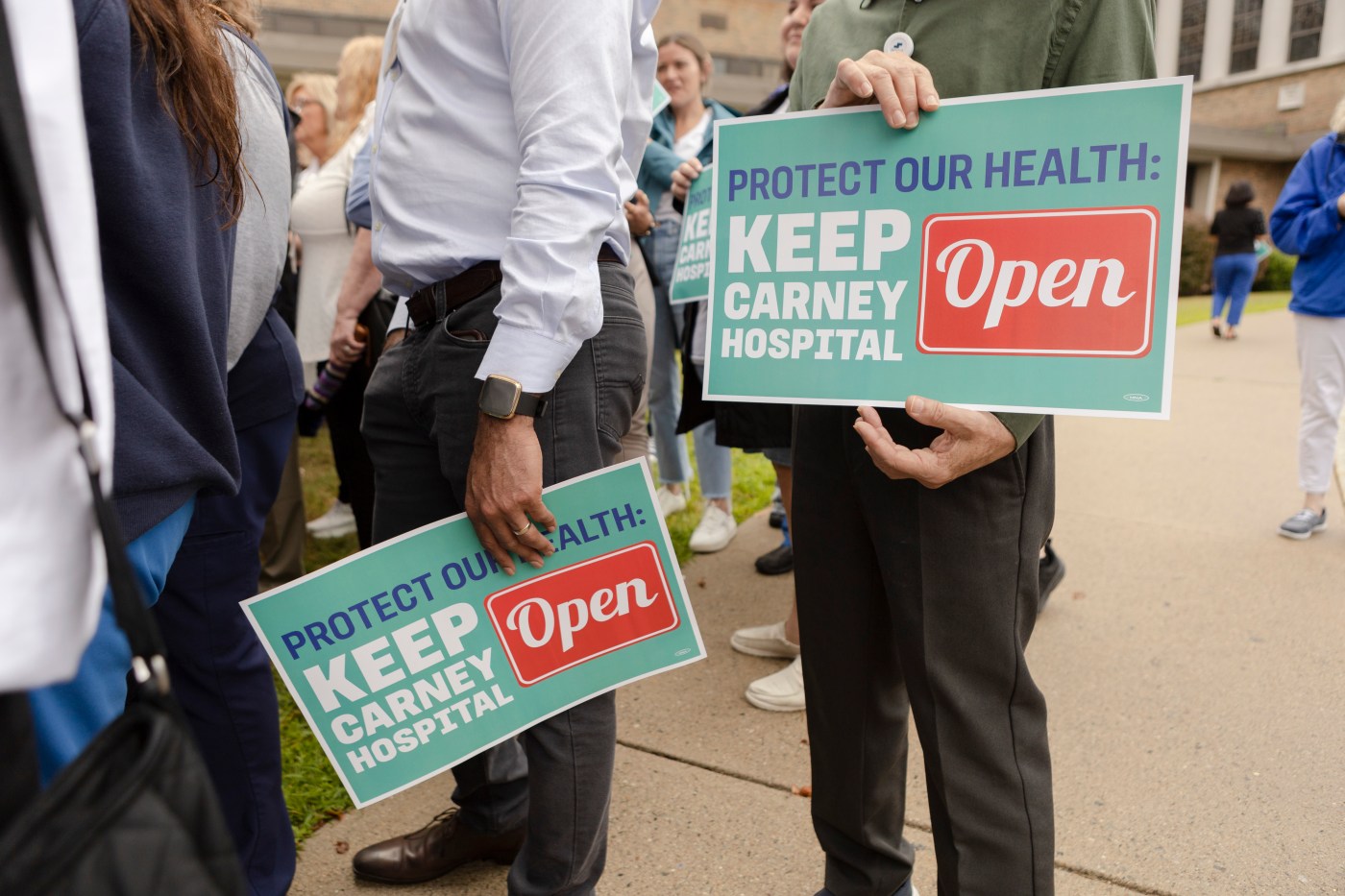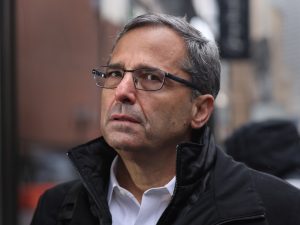
Boston working group recommends health care reuse of Dorchester’s shuttered Carney Hospital site
A Dorchester working group issued a report recommending that the city reuse the shuttered Carney Hospital site for “high-quality” health services and beef up capacity at surrounding community health centers to address gaps brought on by the closure.
The 34-member Dorchester Health Planning Working Group, co-led by Boston Public Health Commissioner Dr. Bisola Ojikutu and President of the Massachusetts League of Community Health Centers Michael Curry, released a report Wednesday regarding the future of the Carney Hospital site, which closed last August.
The report made five key recommendations to Mayor Michelle Wu and Gov. Maura Healey centered around ensuring residents in the underserved areas of Dorchester and Mattapan have better access to the key health care and social services that have become strained after the loss of their neighborhood hospital.
“The closure of Carney Hospital was a sad day and major disruption for the Dorchester community,” Dr. Robbie Goldstein, commissioner of the Massachusetts Department of Public Health, said in a statement. “The recommendations in this report reflect both the urgency of the moment and innovative care models that can serve as a blueprint for the work ahead.”
Carney Hospital shuttered last Aug. 31 as part of the for-profit Steward Health Care’s bankruptcy proceedings, and the working group convened last October to study future uses of the Dorchester site.
The report recommended that the 12.7-acre former hospital site be reused for the provision of high-quality health care and social services that meet the community’s health and social needs, and that staffing capacity be increased at area community health centers to address primary care gaps exacerbated by the closure.
It also recommended that the city address the immediate impact of the Carney Hospital closure on access to emergency medical services, by advocating for additional state funding and reimbursement to nearby community health centers and hospitals, and deploying more ambulances to that area, among other steps.
The report highlights 30,000 emergency department visits per year at Carney Hospital prior to its closure, representing the sixth highest ED volume in Boston.
Carney’s closure has led to longer ambulance transport times for patients in the Dorchester and Mattapan neighborhoods, and strained emergency department services in the region, the report contends.
There were 1,073 ambulance trips to the emergency department at Beth Israel Deaconess Hospital Milton, the closest hospital to the Carney site, in December 2024, compared to 853 in January 2024, representing a roughly 25% increase.
In January 2025, 24.5% of ambulance to ED trips originated in Boston, compared to 11.1% in January 2024, the report states.
“Data from the Massachusetts Department of Public Health show that the number of EMS runs from the Carney region to area hospitals Beth Israel Deaconess Hospital-Milton, Boston Medical Center, Brigham and Women’s Faulkner, and South Shore Hospitals has increased since the Aug. 31 closure date,” the report states.
The report also recommended that the city and state look to increase behavioral health care and treatment capacity in community-based settings to avoid emergency department use where appropriate, and invest in holistic systems of care that prioritize health-related social needs and social determinants of health, including through the ongoing use of the hospital site.
Related Articles
Battenfeld: Trump supporter super PAC donation more ammo for Wu
Boston Water and Sewer Commission parts ways with its $200K HR director amid civil fraud allegations
Trump administration’s visit to Boston to probe college antisemitism is off
Don’t diss Tania, Dianne Wilkerson warns candidates vying to replace disgraced Boston city councilor
Pols & Politics: Betrayal in Boston; Galvin looks to fix city election flaws
The working group emphasized that recommendations for any specific new ownership structure for the site is outside the scope of its report, and that it is not taking a position on which entity or entities would carry out its vision for the site nor advocating for either a reuse of existing facilities or new construction.
It noted in the report, however, that the mayor has “communicated the city’s intent to use its land use authority to ensure that the site continues to be used for the provision of health services.”
The report also mentions that the recommended uses would likely require various approvals at the state level.
Mayor Wu, in a statement, said the working group’s “thoughtful recommendations will serve as a roadmap to creating equitable and financially sustainable access to health care for communities in Dorchester.”
Michael Curry (Matt Stone/ Boston Herald, File)
Carney Hospital. (Matt Stone/Boston Herald)


